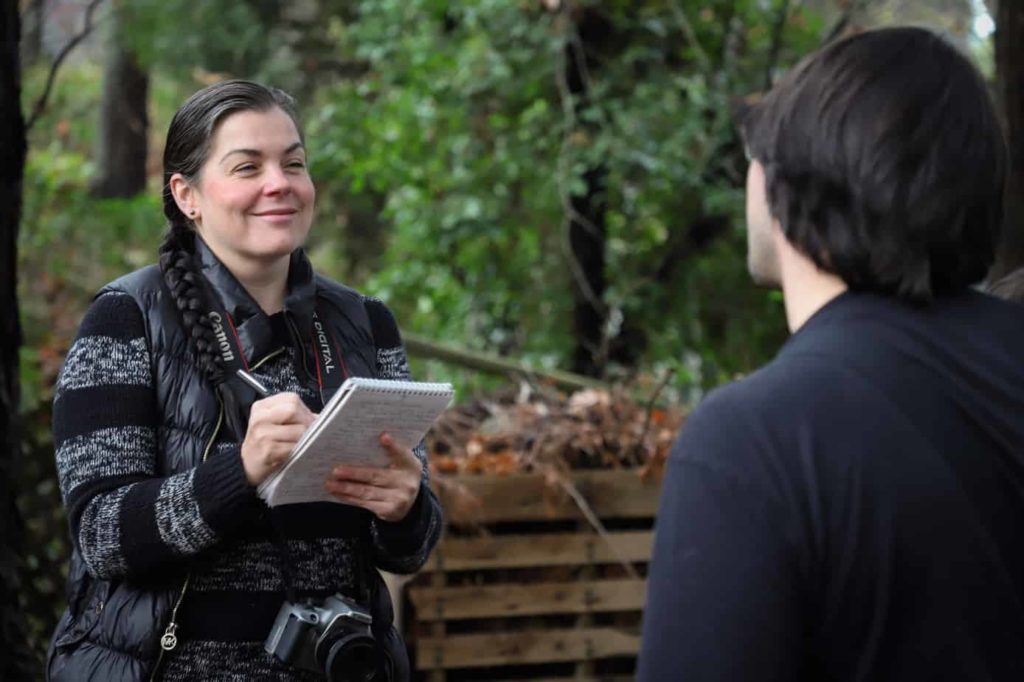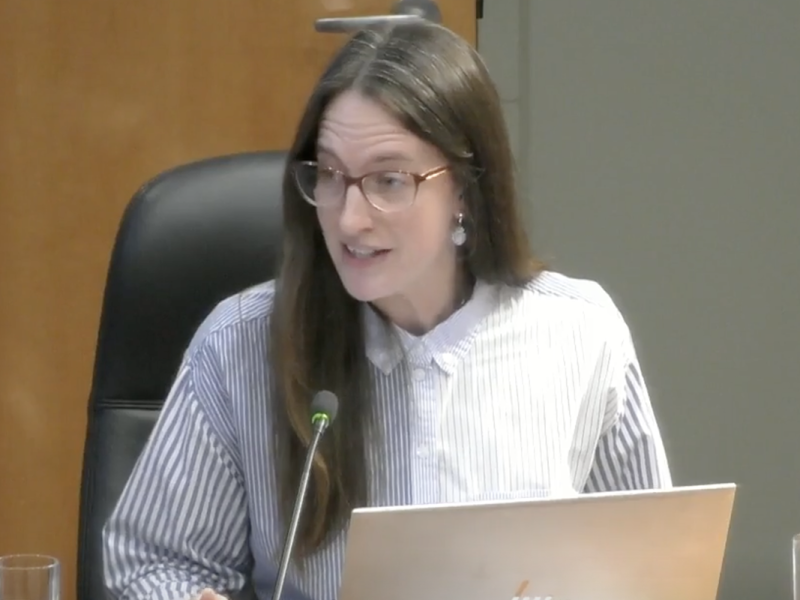
“The Daily News was my dream job,” says Nanaimo’s Julie Chadwick, a reporter and editor for The Nanaimo Daily News before it shut down after 141 years. In the lead up to the closure, she’d seen the writing on the wall—the ripple effects from a decline in ad revenue like a reluctance to rehire staff.
And after it closed, the gaps in local news coverage left a mark.
“There were stories that were being broken in other papers, like say the Victoria paper, that were Nanaimo-based stories that I felt like we really should have been breaking on the ground,” Chadwick says.
“And I really learned that that’s how news works, right from the ground up. It’s from the people that are in the community that know what’s going on.”
She says one of her favourite parts of the job was going to events. She knew the people there, and had that long running understanding of complex local issues.
“You’re there at really crucial times in people’s lives. I feel it’s important to maintain those kinds of connections.”
Now, Chadwick is part of a group of journalists working to bring in-depth news to Nanaimo with The Discourse — an independent outlet focused on community-driven reporting. This week, the team announced that if 5,000 locals sign-up in support of in-depth local news by Dec. 4, they’ll be able to launch a weekly local news and events email newsletter, hire additional local reporters to continue investigating issues locals care about, and offer “public newsrooms” that bring people together, face-to-face (or virtually, for now).
As a community-driven news organization, The Discourse needs to know there’s enough people who want this kind of work in Nanaimo.
Getting started
The Discourse currently runs a successful independent outlet in the Cowichan Valley. It’s through this work that the team heard from people in Nanaimo that they wanted stories covered there, too.
So for the past few months, Chadwick and The Discourse team have been delivering in-depth journalism on issues like the state of Vancouver Island passenger rail and the housing, homelessness and mental health crises unfolding downtown.
Through this reporting we saw that people in Nanaimo are interested in in-depth stories, explains Chadwick. And that’s why, if The Discourse can get the community’s support, they can establish The Discourse Nanaimo for the long haul.
[optin-monster slug=”gsetmbbrfkq8sga6h8wj”]
Since reporting for The Discourse, Chadwick says she’s been able to do the kind of reporting she’s always wanted to.
“An actual deep look at the issues, what is behind it and not just what’s happening, but why is it happening,” she says. The rigorous fact-checking from the team is a huge relief, she says, as it’s often the first thing to fall by the wayside with cutbacks.
Chadwick hopes more in-depth, rigorously researched reporting on issues like homelessness in Nanaimo will foster a more balanced conversation.
“There’s a lot of talk that is not factually informed,” she says. “I feel like that’s where a lot of factions and infighting happens, especially with online discussions.”
Chadwick started her journalism career early, as a founding editor of the Nanaimo community youth paper The Mind’s Eye where she worked with local youth and reported issues like Nanaimo’s skateboarding bylaws. She went on to become editor of The Navigator, Vancouver Island University’s student newspaper.
She didn’t land her reporting position at The Nanaimo Daily News by chance.
“I worked my way up in the sort of traditional sense,” she says, joking that she was the “ad-copy girl,” like a 1980s movie mailroom hire that earns their way up the ranks. Since there wasn’t a reporting gig open at the time, she was hired as a columnist. Then she did data entry for the ad department where she pestered the editor for a job—and eventually landed one.
In 2017, she published a book based on a story that came across her desk at the Daily News, The Man Who Carried Cash, which tells the untold story of the man behind Johnny Cash—his manager, Saul Holiff.
As a lead reporter behind many pivotal—and sometimes tragic—stories in Nanaimo, like the shooting of Western Forest Products’ employees Michael Lunn and Fred McEachern in 2014, she’s eager to serve her community.
“I think people are excited to see me writing about Nanaimo again.” As some community members have put it: “Chadwick’s back.”
Now, with a Nanaimo-powered local news outlet on the horizon, other local reporters like Chadwick who’ve lost the opportunity to investigate stories for their community might soon be able to make their own comeback. [end]



